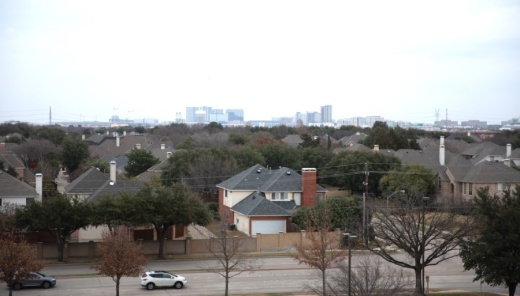The preliminary property valuation countywide is $156 billion, compared with the 2019 certified tax roll of more than $149 billion, according to the latest numbers from the Collin Central Appraisal District.
David Long, president of the Collin County Association of Realtors, said the slowing of values is tied to a decrease in the number of large-scale corporations moving to the area.
“If you go back a few years ago, we had a really big influx [of new companies],” Long said. “It is still a good market, but it is slowing down compared to what it was.”
Cities and school districts use the preliminary appraisals to help draft their budgets and determine tax rates for the upcoming fiscal year.
Countywide, the tax rolls added nearly $5 billion worth of value in new construction.
Rural cities in the north and east parts of the county, including Anna, Melissa, Farmersville and Princeton, accounted for the bulk of the increase.
Home buyers and builders are flocking to these areas because they can get more bang for their buck, Long said.
“You can get more house for your money in these smaller communities,” he said. “And builders know they can acquire land to build.”
Celina saw the biggest jump in value, up 13.45% year over year. The estimated average home value in Celina is $387,000.
The county’s larger, more established cities, such as Frisco, McKinney, Richardson and Plano, saw low to moderate increases between 2% and 7%. This is because homes in these areas are more expensive and there is less space to build, Long said.
But that does not mean buyers have stopped looking for homes in those areas, he added.
“If people can afford it, they prefer to have a shorter commute and ready access to entertainment, doctors, hospitals, shopping and so on,” he said. All taxable property is appraised as of Jan. 1, which means this year’s estimated values predate economic hardships tied to the coronavirus pandemic.
Despite the slowdown in activity seen in the spring, Long said that a shortage in inventory will likely cause prices to increase in the late summer and fall.
“I don't know if they’ll be the same as last year, but they will be increasing more than at the moment,” he said.
The district sent notices of appraised values to property owners May 15. The protest deadline is June 15.





